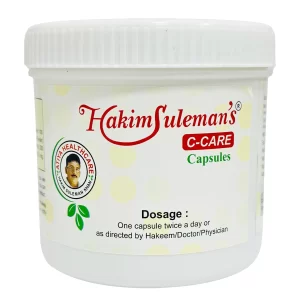Hormones are chemicals produced by glands in the endocrine system. Hormones travel through the bloodstream to the tissues and organs telling them what to do and when to do. Hormonal disturbances occur when there is an imbalance in its formation and distribution, like when there is too much or too little of a hormone in the bloodstream. Hormones play an essential role in the smooth functioning of our bodies. Even small hormonal disturbances can cause side-effects throughout the body.
Symptoms
- Unexplained weight gain or weight loss
- Unexplained or excessive sweating
- Difficulty in sleeping
- Changes in sensitivity to cold and heat
- Very dry skin or skin rashes
- Changes in blood pressure
- Changes in heart rate
- Brittle or weak bones
- Changes in blood sugar concentration
- Irritability/anxiety
- Unexplained and long-term fatigue
- Increased thirst
- Depression
- Headaches
- Urge to go to the bathroom more or less than usual
- Bloating
- Changes in appetite
- Reduced sex drive
- Thinning of hair / brittle hair
- Infertility
- Puffy face
- Blurred vision
- Bulge in the neck
- Breast tenderness
- Deepening of the voice in females
Causes
- Endocrine gland not functioning properly
- Several medical conditions
- Certain lifestyle habits
- Environmental factors
- Chronic or extreme stress
- Type 1 and Type 2 diabetes
- Hyperglycemia (overproduction of glucagon)
- Hypoglycemia (more insulin produced than there is glucose in the blood)
- Underactive thyroid (hypothyroidism)
- Overactive thyroid (hyperthyroidism)
- Over- or underproduction of the parathyroid hormone
- Poor diet and nutrition
- Being overweight
- Hormonal replacement or birth control medications
- Abuse of anabolic steroid medications
- Endocrine gland injury
- Severe allergic reactions or infections
- Cancers that involve endocrine glands
- Chemotherapy and radiation therapy
- Iodine deficiency (goiters)
- Hereditary pancreatitis
- Exposure to toxins, pollutants, and endocrine disrupting chemicals
Prevention and Precautions
- Eat enough protein
- Regular exercise
- Avoid sugar and refined carbs
- Manage stress
- Consume healthy fats
- Avoid overeating
- Drink green tea
- Get consistent, high-quality sleep
- Stay away from sugary beverages
- Consume high-fibre diet
Lifestyle and Dietary Tips
- Eat plant-based, high-fibre diet
- Eat fresh fruits and vegetables
- Physical exercise
- Stress management
- Reduce xenoestrogen exposure
Home Remedies
- Eat healthy fats
- Omega 3 Fish Oil
- Limit alcohol and caffeine intake
- Lifestyle changes
- Vitamins and Minerals
- Ashwagandha
- Bi-estrogen
- Tri-estrogen
Our Suggestion
Showing the single result

